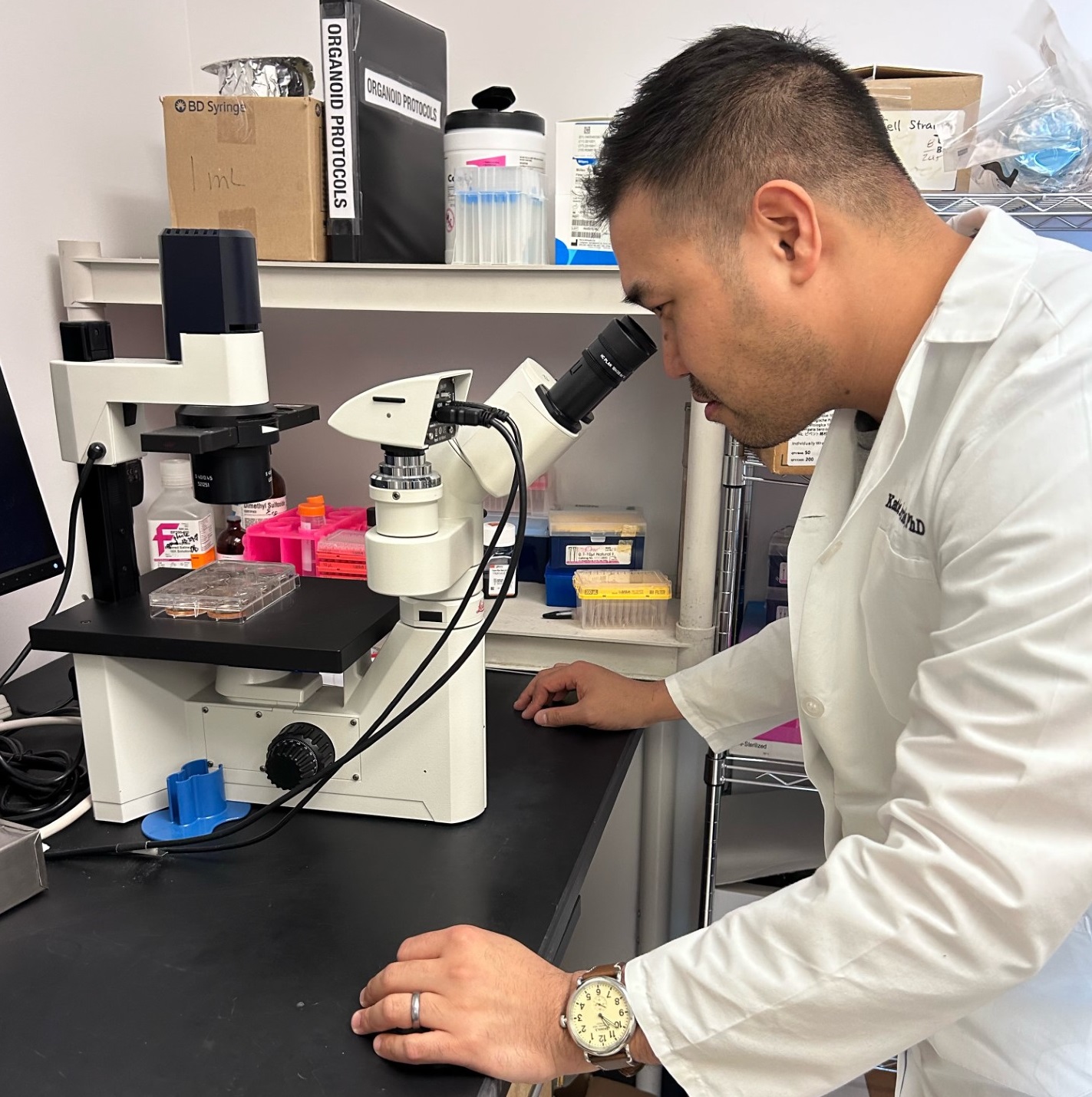Changing Lives Through Groundbreaking Science
Using robust scientific and lay review, in the 2024 cycle, the GI Research Foundation awarded $600,000 to eight investigators at the University of Chicago for novel research projects.
2024 Innovation Awards
Examination of Gut Mucosal Populations and Dynamics During region-specific Microbiota Transplants that Drive Persistent, Off-target Consequences to the Host
Orlando DeLeon, PhD
THE PROBLEM
We are actively exploring Fecal material transplant (FMT) whereby healthy donor feces are transplanted as a treatment for many gut microbiome-associated diseases such as inflammatory bowel disease (IBD). FMTs mostly contain bacteria from the large intestine, which are not normally found in the small bowel. Therefore, transplants of fecal matter from the large intestine don’t restore function of the small intestine and vice versa. These microbial mismatches also lead to changes in behavior and metabolism. Frighteningly, the changes we found in mice also occurred in humans undergoing FMT. We now need to understand which specific cells in the intestine are changed and how to intercede.
THE HYPOTHESIS
We expect that the numbers and the types of mis-matched cells to be drastically different after small and large bowel microbial transplants.
THE RESEARCH PLAN
- Single cell RNA sequencing (scRNAseq) is a technology that will allow us to identify changes in each cell of the intestinal tract during situations of matched or mismatched microbes. This will identify which specific intestinal cells are impacted during microbial mismatches after FMT.
- We will perform a small, pilot experiment to determine whether deeper investigation of stem cell dynamics is warranted.
- We will use a Confetti mouse model (a mouse that can be used to track any cell type) to determine whether small bowel versus large bowel microbe transplants (JMT and FMT, respectively) change how the intestinal epithelial tissue heals and replenishes itself.
THE GOAL
- More Knowledge. How having the right microbes in the right place, the regional microbiota, is important to the proper functioning of the intestinal organ.
- Better therapies. More effective live biotherapeutics (LBPs). Better microbial transplants (MTs). Improved designs of microbiome-based interventions (MBIs).
“These grants focus on research that advances the diagnosis, treatment, prevention, and cure of digestive diseases. Additionally, the goals of the grants program include to:
- Help build the field by funding emerging scientific leaders
- Provide seed funding for innovative ideas that, if successful, could result in larger grants from funders such as the National Institutes of Health
- Fund bold research ideas that might have risk of failure but high reward for success, as these projects have difficulty securing funding elsewhere
Thank you to our grant review committee members and scientific advisors who read and scored proposals with a focus on ensuring the recommended projects meet our mission and are centered on advancing patient care and outcomes.”


